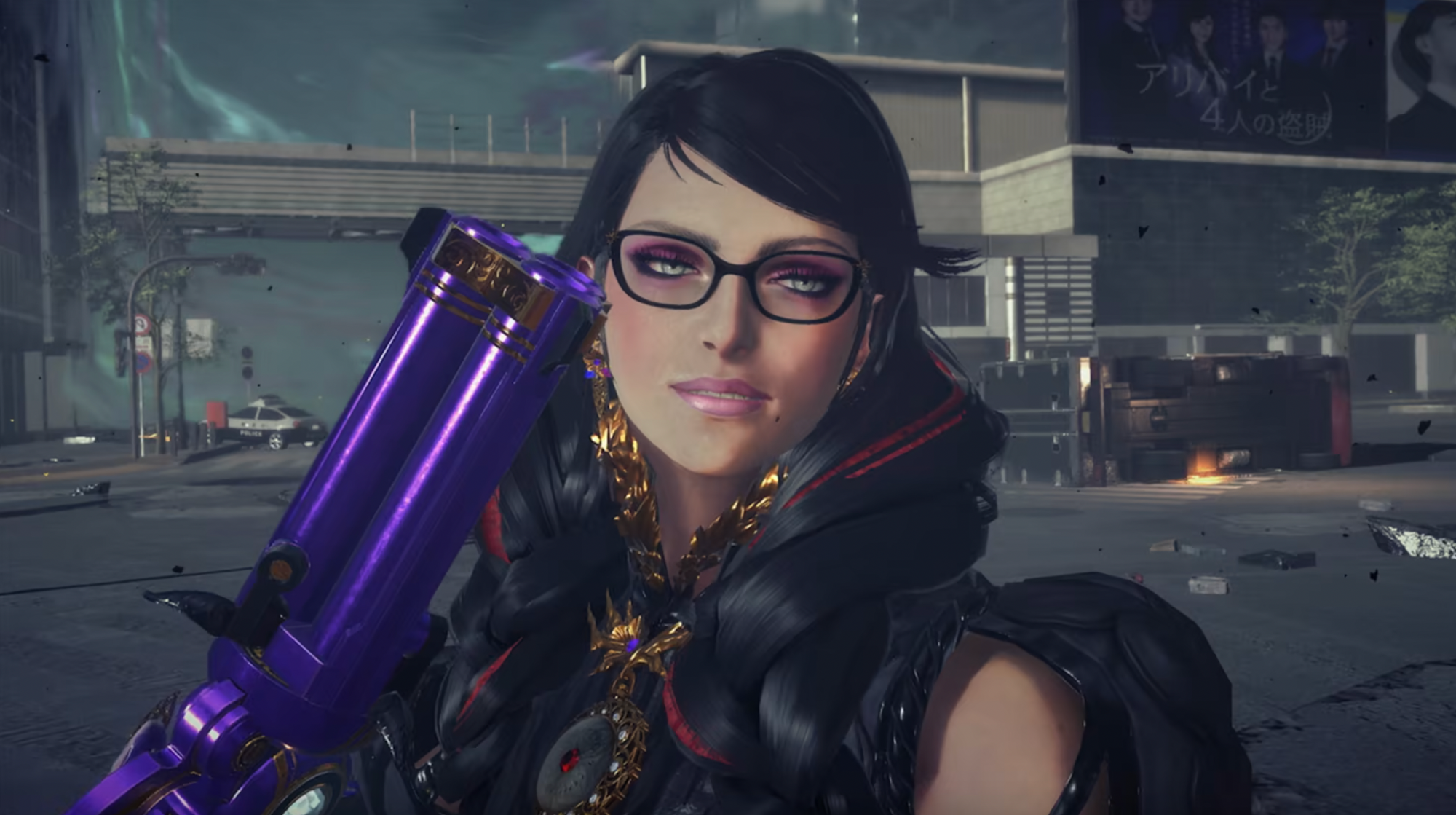Controversial Treatment of Voice Talent Strikes Again in Bayonetta 3
Hellena Taylor's call for fair pay in the wake of Bayonetta 3 reminds the public of how often voice actors are undervalued

The video game industry, like any entertainment industry, is evolving with each generation. Most of these evolutions are happening behind the scenes, as it’s the developers who know all the ins and outs of advanced hardware and technical limitations being broken again and again. This doesn’t mean, however, that the gamers getting to experience these games cannot notice the changes once they pop the finished product into their consoles or PCs.
Alongside graphical capabilities and loading speed, one innovation of the video game industry which people seem to take for granted these days is voice acting. It’s relatively uncommon to have a video game without voice acting, with some exceptions in the indie scene or an artistic choice by the developers. Most people, however, seem to forget that voice acting in video games isn’t that old of a feature in comparison. Most games didn’t start featuring voice acting until the original PlayStation, which isn’t even 30 years old.
In recent years, gamers expect voice acting in their video games, but most take it for granted. It might be safe to assume that most just play a video game for the gameplay and won’t pay any attention to the story; often skipping cutscenes when possible. On the other end of the spectrum, you have the gamers who pay attention to the story and come to admire the characters for who they are, including their voices.

Just like cartoon characters, video game characters can be identified by their voices, and many fans resonate with a character based on voice alone. There is, of course, much more to a character than just a voice actor behind a mic. Often it is the voice that gives players first impressions of a character’s personality and mannerisms. Without really noticing, we come to associate it with said character and it can feel odd to suddenly hear an unfamiliar voice coming out of a familiar face.
It’s not like things stay consistent, as many times a character may end up re-cast throughout a long-running franchise. Resident Evil had quite a few voice actors giving their personal spin to its lead characters. 2018’s God of War and its upcoming sequel also re-cast the lead character, Kratos, as the developers headed in a different direction than previously. The controversy and debates regarding the changes in the cast for the Sonic the Hedgehog franchise have lasted for over a decade and may never truly cease. But I’m here to discuss a much bigger issue with voice acting in games.
Video game voice actors are mistreated by the developers.
While the topic has been spoken of before, it recently came back to the news following the re-casting of Hellena Taylor as the titular character in the upcoming Bayonetta 3. Taylor has voiced the character in the previous two outings and even provided the witch’s voice in the Super Smash Bros. franchise. The change came across as odd to fans until the actress spoke up about the matter on her Twitter.
Friends, Worldlings, Bayonutters. Hear ye!#PlatinumGames #Nintendo #Bayonetta #Bayonetta3 #Bayonutters #Boycott #NintendoEurope #NintendoAmerica #NintendoJapan pic.twitter.com/h9lwiX2bBt
— Hellena Taylor (@hellenataylor) October 15, 2022
Taylor declined to reprise her role in the game, as the studio offered her only $4,000 USD for providing voice work for the entire game. This amount is extremely low for work on a project that could stretch across multiple years and several sessions but is also barely enough to make it through the month. The actress pointed out that considering the franchise has grossed over 450$ million over the years from the games alone, a decent paycheck for her living wasn’t that big of an ask.
While many fans spoke up in Taylor’s defense and are planning to boycott Bayonetta 3 at her request, some couldn’t help but wonder about her replacement, famous voice actress Jennifer Hale. Hale is no stranger to the video game world, having voiced characters such as the infamous Commander Shepard in Mass Effect 3 and Rivet in Ratchet and Clank: Rift Apart, to name a few out of the many roles she has lent her voice to. Considering Hale is a much more known voice actress than Taylor, having voiced so many well-known characters, wouldn’t she be more expensive to hire than Taylor?
From reading discussions on the topic, it reminded me that Jennifer Hale is actually a part of a union; The Screen Actors Guild American Federation of Television and Radio Artists (SAG-AFTRA). If that long name sounds familiar to you, it’s because that same union engaged in a strike against several video game developers and publishers’ poor treatment of voice actors and their refusal to pay the actors royalties after a game is released. The strike started in 2016 and ended with a compromise in 2017, which lasts to this day. To remove any doubts, yes, Hale was an active speaker throughout the strike against said publishers.
I want to be clear that I do not wish to criticize Jennifer Hale, or her decision to take on the role of Bayonetta, as I’m sure there are a lot more factors at play here than an actress going back on her words. The announcement made me realize that while Jennifer Hale is part of a union, Hellena Taylor is not. While I’m making an assumption here, a union negotiating for its talent might have a better chance to seal a better-paying deal than a single talent and any agent or lawyer they can hire. From personal experience trying to get into voice acting, studios are quick to ignore you if you’re not a part of a bigger union or don't have connections.
This is what I feel is the real problem here.
SAG-AFTRA may have reached a better deal concerning their talents back in 2017 — which I am beyond happy about for the record — but those voice actors without a union or ones which are a part of one still must fight through unfair terms and conditions. They still receive poor treatment from video game companies who do not seem to care much about the talent once the ink has dried… if actors even reach that stage.
Years ago, voice actor Ryan Drummond re-auditioned for the role of Sonic the Hedgehog after not voicing the character for several years. Many consider Drummond as the hedgehog’s best voice and he was willing to return until SEGA gave him an ultimatum: leave his union or be rejected for the role. Drummond turned down the offer, referring to it as a “slap in the face”. Famous voice actress Tara Strong even claimed that she was told to her face that “nobody cares about voice acting”, which many found unacceptable.
Voice acting may not be the make-it-or-break-it factor of video game development, but it’s a lot more crucial than some would give it credit for. A game like The Last of Us wouldn’t have received the critical acclaim it did were it not for the amazing performances of the cast which helped gamers form emotional attachments to their characters. Franchises praised for their comedic writing and sharp dialogue like Ratchet and Clank might not have gathered said praise if it weren’t for the sharp deliveries of the voice actors.
Performances by The Last of Us voice actors have received critical acclaim for their powerful deliveries. Source: YouTube.
The controversy surrounding Bayonetta 3 is sadly another case in which the video game industry doesn't even bat an eye when it comes to voice acting and the poor treatment of its purveyors. While I understand it’s just a small part in the grand scheme of things, it’s a part provided by people who, just like animators, programmers, and so on… are trying to make ends meet. Voice actors deserve better conditions because they’re one of the first things we as fans think of with our favorite characters.
Making a video game is a collective effort and I think every effort which goes into making one must be treated fairly. Performances do matter.
